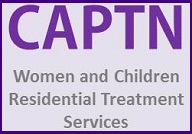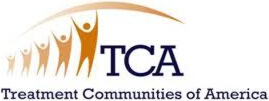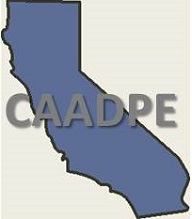Partners and Affiliates
Drug Abuse Alternatives Center
The Drug Abuse Alternatives Center (DAAC) and Center Point, Inc. initiated a strategic regional partnership on May 1, 2012. This partnership capitalizes on the respective history, strengths and organizational capabilities of both Agencies. DAAC and Center Point, Inc. are both long-established non-profit substance abuse, mental health and social service agencies.
The Drug Abuse Alternatives Center (DAAC) is dedicated to improving the lives of individuals and families. The Agency’s mission is Turning Lives Around by Providing Healthy Alternatives to Alcohol and other Drug Use. DAAC has provided thousands of people the tools and guidance to live a healthy and sober life.
DAAC serves over 2,800 clients annually in their treatment programs and over 6,000 individuals annually in outreach programs.
Located in Northern California, close to San Francisco, Sacramento and Oakland, DAAC offers a safe environment in which to recover from the toxic effects of drug addiction and alcoholism.
Treatment Communities of America
TCA was founded in 1975 as a not for profit member-led professional association in the United States and Canada. The Therapeutic Community Model of Services has been evolving since 1946, with roots in social welfare, psychiatry, psychology, sociology and more recently, addiction treatment.
TCA is a consortium of over 600 programs providing an array of integrated services which include primary and preventive care, outreach, education, assessment, referral and follow-up, detoxification and crisis management, residential treatment with aftercare support, outpatient services, family therapy, mental health services, vocational assistance and job placement and emergency, transitional and permanent housing with supportive services.
TCA programs serve a broad sector of the community including pregnant and postpartum women and their dependent children, the homeless, adolescents, those with mental illness and addictive disorders, those afflicted with HIV/AIDS and Hepatitis C, inmates, ex-offenders, those involved with the criminal justice system, veterans and the National Guard.
TCA believes that addiction requires a diagnosis and diagnosis requires an appropriate level of treatment. Further, that treatment saves money and lives and that recovery restores families and communities.
Dr. Sushma D Taylor is currently the President of the Treatment Communities of America, the first woman in the history of the organization to be elected to such a position in the pre-eminent national association in the field.
California Association of Alcohol and Drug Program Executives
Center Point, Inc. is a member of the California Association of Alcohol and Drug Program Executives. CAADPE is a professional association of community-based nonprofit alcohol recovery and other substance use disorder treatment agency executives.
Member agencies provide substance use disorder treatment services at over 300 sites in California. Established in 1989, CAADPE is the only state-wide association representing all types of substance use disorder treatment programs.
CAADPE is organized by chapters throughout the state and is headquartered in Sacramento for easy access to state government. A volunteer board of directors, elected by the members, guides the association and its policies on issues vital to its members. Our organization sponsors professional education and training programs and conducts public education about the need for quality alcohol and other substance use disorder services to meet the need of the community.
CAADPE’s regional chapters meet to exchange information, review and develop strategies on local issues, and coordinate local responses to statewide issues. Chapters currently operate in Southern California (Los Angeles), Northern California, the San Francisco Bay Area and San Diego.
World Federation of Therapeutic Communities
The goal of the World Federation of Therapeutic Communities (WFTC) is to join together in a worldwide association of sharing, understanding and cooperation within the global TC Movement as well as to widen recognition and acceptance of the Therapeutic Community and the Therapeutic Community approach among health organizations and health delivery systems of international and national bodies.
The WFTC calls for a holistic approach to healing — drawing upon all the disciplines, including medical, psychiatric, and social services, as well as TC trained professional service providers. The WFTC recognizes the importance of adapting the TC model to the respective cultures of programs in countries worldwide.
Concepts Foundation
Concepts Foundation supports charitable programs which provide educational, vocational, psychological and social rehabilitation services that combat social problems, including addictive disorders, poverty, homelessness and unemployment.
Concepts Foundation is committed to pro-social change by supporting programs and organizations that provide social rehabilitation services for disenfranchised families, men, women and children. Concepts Foundation funds innovative programs that help individuals and families deal with homelessness, unemployment, addictive disorders, mental illness, medical problems and other impediments to self-sufficiency.
In 2004, a distinguished group of concerned citizens interested in conducting philanthropic activities, created the Concepts Foundation. Concepts Foundation supports charitable programs that will promote the development of services for underserved communities, individuals and families by improving their quality of life, self-worth, dignity and promoting personal and social responsibility.

California Perinatal Treatment Network
Center Point, Inc. is part of the Women and Children’s Residential Treatment Services (WCRTS) which is an affiliation of nine California agencies that have pioneered services for women and children. The WCRTS programs, collectively known as the California Perinatal Treatment Network (CAPTN), provide comprehensive care, family support, and reunification for vulnerable women and children. Based in five counties (Los Angeles (3), San Diego, Alameda, San Francisco, Marin, and San Joaquin), WCRTS has been operating as a statewide program for over 15 years and serves as regional geographic service center hubs. Each regional program accepts referrals from any county and finds placement at one of the eight programs without a charge back to the referring county.
The WCRTS programs have achieved positive outcomes for keeping at-risk families safe and stable since their inception in 1993 as a national demonstration program. Annually, the programs average a 67% success rate at keeping families intact and 64% of heads of household are employed or in job training when they complete the program.





